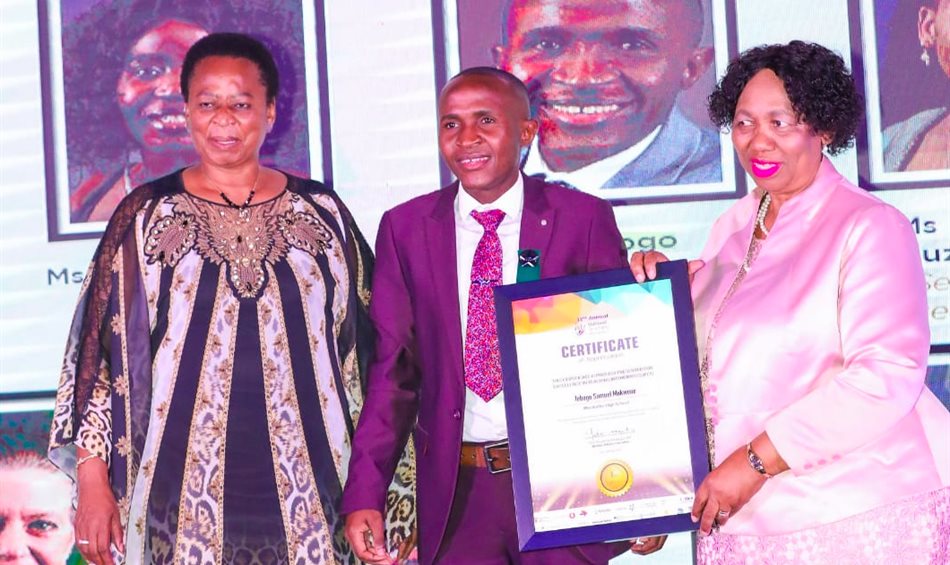
Tebogo Mokwene (center) with the minister of basic education, Angie Motshekga (right) and deputy minister of basic education, Dr Reginah Mhaule (left)
Saica’s development camps started in 2002 and are hosted annually across all South Africa’s nine provinces. These camps form part of Saica's strategy to aid the global drive for transformation, employment, and growth by supporting social and economic development as outlined in the National Development Plan (NDP) and the United Nations Sustainable Development Goals (SDGs). To be invited, learners must score a minimum of 60% in mathematics and English.
According to Lwando Bantom, Saica’s project director: Transformational Projects, despite being initially designed to promote the chartered accountancy profession, the camps have had significant impacts in other fields as well.
“The camps are now speaking to the needs of the country as per the shortage of skills in these fields. What is even more exciting about these camps is the fact that we are changing the landscape of these communities. We are developing future leaders of South African industries and even beyond,” says Bantom.
Mokwene, a high school teacher at Mmabatho High School in the North-West province and winner of the best mathematics teacher in the country for 2022 at the National Teachers Awards, is one of the mathematics tutors at Saica’s development camp in the North-West province, along with his colleague, Medusa Nkgatho.
As he reflects on the programme’s impact, Mokwene, who has been a tutor in the camp for the past five years, says these camps allow learners to sharpen their skills.
“We sharpen our learners’ mathematics skills and in subjects like accounting, physical sciences and many others, so our learners can pursue a career in chartered accountancy and other key professions of high demand. I thank Saica for such a wonderful programme, Ausi Lerato [Lerato Kotane], Saica’s project manager: Transformational Projects in the North-West and the team leaders who organise everything and my responsibility is just to be present and teach mathematics,” says Mokwene.
He says most learners are poorly grounded on mathematical concepts and as teachers, they should have the ability to make learners see mathematics as a subject that stimulates logical thinking. To teach mathematics, Mokwene uses a variety of self-generated methods to make learning entertaining and effective for learners. One of them is the ‘Jobe rule’ for trigonometry.
“We cannot teach this generation the way we were taught in the '90s. Most teaching methods are directed to learners with a good aptitude for maths, leaving behind those who are struggling. The ‘Jobe rule’ allows learners to tackle trigonometry with ease. I use Amapiano sound to explain it to them. As they see, narrate, and recite this ‘Jobe rule’ song, they realise that mathematics is not as tough as they think and when they get to the examination room they excel,” adds Mokwene.
He says the award he received encourages him to make a positive impact on learners. “My learners are doing extremely well both at school and in the Saica development camp, the numbers for mathematics in terms of pass rate continue to rise and we are only getting better,” says Mokwene.
Mokwene also thanks Dr Agnes Motsusi, chief education specialist for curriculum in the North-West province and Phongi Mekgwe, North-West Department of Education’s chief education specialist for mathematics, science and technology, for believing in his abilities.